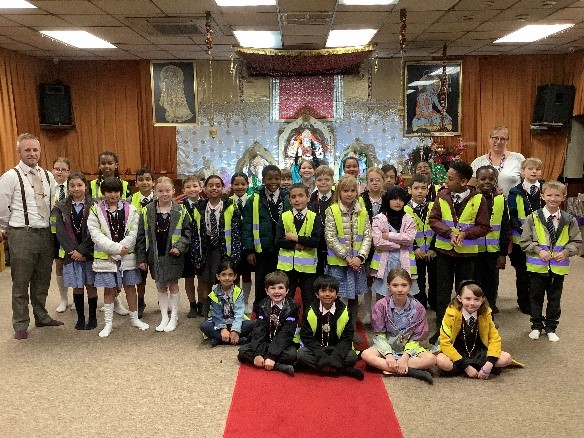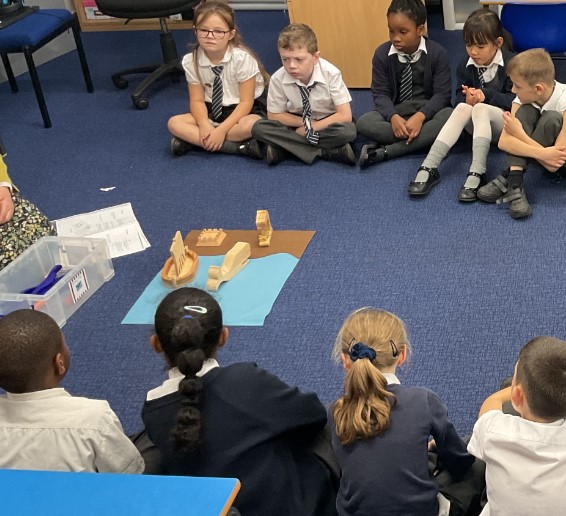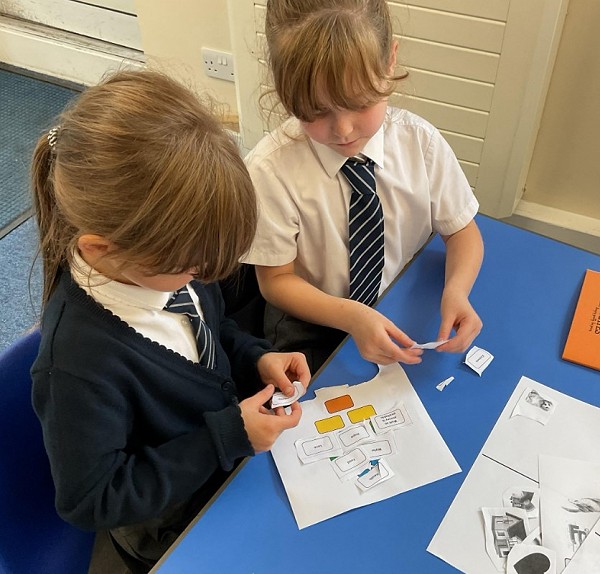Religious Education
Religious Education is a core subject at St Andrew’s CE Primary School. Pupils are taught to know about and understand Christianity as a living world faith. They also develop their knowledge and understanding of other major world religions and world views and their impact on society and culture. Our RE Curriculum is designed to encourage pupils to critically reflect on their own religious, spiritual and/or philosophical convictions. In line with Church of England guidance, at least 5% of curriculum time is dedicated to RE (over and above time spent on Collective Worship) and within that 5%, over two thirds is devoted to the teaching of Christianity. Our school uses the Scheme of Work recommended by the London Diocese Board for Schools (LDBS). Across the school we have regular visits to our local church and other places of worship, giving the children the opportunity to enjoy first hand experiences of religious practice. This enhances their understanding and awareness of different religious beliefs and practices. Each class also run ‘Godly play sessions’ within their classes to support learning in RE.


EYFS
Religious Education in EYFS is taught through two strands: Personal, Social and Emotional Development and Understanding the World.
Children are taught to recognise that people have different beliefs and celebrate special times in different ways. They learn to understand that some places are special to members of their community. Children are encouraged to develop positive attitudes about the differences between people. They learn to see themselves as a valuable individual and are encouraged to think about the perspective of others. They talk about the lives of people around them and their roles in society. They learn about religious settings, events and characters through books read in class and storytelling. Children learn some similarities and differences between different religious and cultural communities in this country and draw on their experiences and what has been read in class.

KS1
In KS1, the children read, retell and begin to suggest meanings to some religious and moral stories. They ask and respond to questions about why religious communities do different things. Children learn to recognise that religious symbols, words and actions express a community way of living. Children are taught to notice and respond sensitively to some similarities between different religious and worldviews. They explore questions about meaning and truth and discuss sacred writings and sources of wisdom. By the end of the key stage they begin to express their ideas and opinions and to recognise there could be more than one answer.
Christianity units include learning about Nativity and Easter, stories that Jesus told and learning about beliefs and practices for Christians. Pupils in KS1 also begin to learn about Islam and Judaism.
KS2
In KS2, children begin to make links between the beliefs of the different religions studied and show how they are connected to believers’ lives. They learn about different features of religion in terms of celebration, worship, pilgrimage and the rituals which mark important points in life. Children learn to use the correct religious vocabulary to describe and compare what practices and experiences may be involved in belonging to different religious groups. They are encouraged to begin to understand and explain how concepts/beliefs resonate in their own life and in the life of a believer and how this impacts on the way they and a believer chooses to live their life. Pupils learn to show understanding of the similarities and differences in forms of religious, spiritual and moral expression found within and between religions and begin to apply their knowledge to their own understanding of religious and spiritual expression of belief and value. Children begin to consider and apply ideas about ways in which diverse communities can live together for the well-being of all and respond thoughtfully to ideas about community, values and respect. In learning about the search for meaning, purpose and truth, they begin to apply their own and others' ideas to a given question and support their viewpoint with facts and evidence. Children are taught to ask questions about the moral decisions they make and suggest what might happen as a result of different decisions, including those made with reference to religious beliefs/ values. They learn to apply and express their own and others' ideas about ethical questions, including ideas about what is right and wrong and what is just and fair.
Christianity units revisit the Nativity and Easter every year, building on their previous learning. Other Christianity units of work include: leaning about the Bible; Jesus’ parables and teaching; Christian Liturgy and learning about the journey of life and death from a Christian perspective. Other world faiths taught in KS2 include Judaism, Buddhism, Sikhism, Hinduism and Islam.
